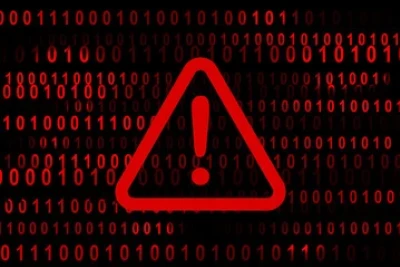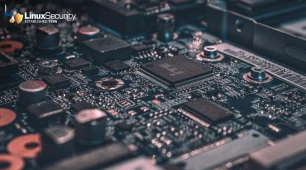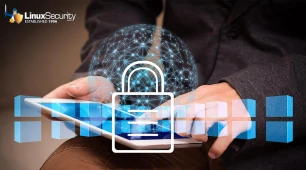
Debian 12.9 has just been released, offering numerous security enhancements and bug fixes vital for Linux security admins managing Debian systems. This point release for the "Bookworm" series addresses critical vulnerabilities in widely-used packages such as Ansible, OpenSSH, and the Linux kernel, ensuring your systems remain secure against recent threats. With security patches already rolling out via security.debian.org, this update is essential for maintaining a fortified, up-to-date Debian environment.
As new installation media becomes available, Debian users are strongly urged to upgrade and take advantage of its improvements. New packages mitigate risks like denial-of-service vulnerabilities in Avahi and arbitrary code execution issues in Ansible-core. Adopting Debian 12.9 significantly strengthens your security posture against potential exploits - an indispensable way to keep your infrastructure secure against possible threats. Let's examine some of the notable changes and improvements introduced in this release and how they will benefit the security and stability of your Linux systems.
Strengthening Core Components
 Source: 9 to 5 LinuxDebian 12.9's focus on fortifying core components sets this release apart. Key packages like Ansible, OpenSSH, and the Linux kernel received crucial security updates that address vulnerabilities that could otherwise lead to system breaches, data leakage, or even full system compromise.
Source: 9 to 5 LinuxDebian 12.9's focus on fortifying core components sets this release apart. Key packages like Ansible, OpenSSH, and the Linux kernel received crucial security updates that address vulnerabilities that could otherwise lead to system breaches, data leakage, or even full system compromise.
Debian 12.9 updates address key flaws in Ansible that allowed for unauthorized code execution so scripts run safely and as intended. OpenSSH updates close security loopholes that attackers could have exploited to gain unauthorized access. Moreover, improvements to the Linux kernel simultaneously address security vulnerabilities and performance issues.
Mitigating Critical Vulnerabilities
Debian 12.9 goes beyond simply updating core packages; it also addresses various vulnerabilities that have come to light recently. We Debian users can now rest easy knowing that potential denial-of-service attacks in Avahi have been mitigated. These attacks could render services unavailable and reduce productivity if left unpatched.
This latest release also addresses Ansible-core's arbitrary code execution vulnerabilities to ensure malicious scripts cannot be used to gain control of systems. These updates go beyond minor fixes; they provide essential protection from known and emerging threats.
Enhanced Stability and Bug Fixes
 While security is paramount, stability is equally crucial in production environments. Debian 12.9 delivers various bug fixes that enhance system reliability on this front. Updating to this latest release means we admins can sidestep many issues that could cause unexpected downtime or erratic behavior.
While security is paramount, stability is equally crucial in production environments. Debian 12.9 delivers various bug fixes that enhance system reliability on this front. Updating to this latest release means we admins can sidestep many issues that could cause unexpected downtime or erratic behavior.
These bug fixes cover many scenarios, from minor annoyances to critical problems. By ironing out these quirks, Debian 12.9 ensures that systems run more smoothly, reducing the administrative overhead caused by troubleshooting and resolving unexpected issues.
Simplified Upgrades with New Installation Media
Debian 12.9 offers new installation media that makes it easier for admins to deploy new installations or upgrade existing systems. These images contain the most up-to-date patches and improvements to ensure installations begin on a secure footing.
Administrators overseeing multiple systems will find this new release more efficient in terms of setting up servers or workstations more quickly and more efficiently than before, thanks to an improved installation process that reduces the time and effort required to bring new systems online, freeing administrators up to focus on optimizing and protecting their environments.
Ongoing Security Maintenance
Even with all of Debian 12.9's updates, keeping security at the forefront of one's mind is essential. Administrators who regularly sync their systems with security.debian.org will find that many fixes are rolled out regularly. Taking such an active stance ensures systems always run the latest, most secure versions of software packages.
Staying abreast of these updates is of utmost importance, so automating tools and regular maintenance routines are vital in keeping systems updated against threats. By combining Debian 12.9's immediate benefits with ongoing security practices, administrators can secure their systems against potential attacks.
How to Upgrade & Best Practices for Upgrading
 Debian 12.9 images can be downloaded here. These images support 64-bit architectures (amd64), as well as 32-bit architectures (i386) and PowerPC 64-bit Little Endians (ppc64el), IBM System z 390x, MIPS 64-bit Little Endians (mips64el), MIPS 16-bit Little Endians (mipsel), MIPS 32 bit Little Endians (mipsel), and MIPS.
Debian 12.9 images can be downloaded here. These images support 64-bit architectures (amd64), as well as 32-bit architectures (i386) and PowerPC 64-bit Little Endians (ppc64el), IBM System z 390x, MIPS 64-bit Little Endians (mips64el), MIPS 16-bit Little Endians (mipsel), MIPS 32 bit Little Endians (mipsel), and MIPS.
Debian 12.9 Live images can also be downloaded from this page, but only on 64-bit systems, preinstalled with KDE Plasma 5.27.5 LTS (Long Term Support), GNOME 43.10, Xfce 4,18, Cinnamon 5.6.8, LXQt 1.26.0, MATE 1.26.0 and LXDE 0.10.0 desktop environments. Download a "Standard" live ISO image without a graphical interface.
Debian GNU/Linux 12 "Bookworm" users should update their installation using the sudo update && sudo full-upgrade commands in a terminal emulator. Alternatively, you can update your installation using a graphical package management tool like Synaptic Package Manager.
Administrators planning an upgrade to Debian 12.9 should follow several best practices. First and foremost, testing in a staging environment before rolling it out to production systems allows any potential issues with the upgrade to be identified and addressed before impacting live operations.
Before initiating an upgrade process, always create backup copies of data and system configurations to avoid risk and disruption during this transition period. Confirm that all dependencies have been fulfilled to prevent interruptions to the upgrade path.
Once your upgrade is complete, conduct a post-upgrade review to ensure all services are running as intended and that no configurations have changed unexpectedly. This helps ensure that the system performs as anticipated and that all benefits from its new release are fully realized.
Our Final Thoughts on the Significance of the Debian 12.9 Release
 Source: Phoronix Debian 12.9 is a necessary release that offers significant security and stability improvements to Debian systems. Addressing vulnerabilities in key packages like Ansible, OpenSSH, and the Linux kernel fortifies systems against potential threats. At the same time, improved stability and comprehensive bug fixes provide smoother operations with decreased administrative overhead costs.
Source: Phoronix Debian 12.9 is a necessary release that offers significant security and stability improvements to Debian systems. Addressing vulnerabilities in key packages like Ansible, OpenSSH, and the Linux kernel fortifies systems against potential threats. At the same time, improved stability and comprehensive bug fixes provide smoother operations with decreased administrative overhead costs.
Debian 12.9 offers administrators a more effortless and safer system deployment and upgrade experience with its simplified installation media, making it easier to keep systems secure and up-to-date. With ongoing security maintenance via security.debian.org, Debian 12.9 equips us to safeguard our infrastructures better.
Linux admins can unleash the full potential of Debian 12.9 by following best practices for upgrading and proactively managing system security to ensure their systems remain resilient in the face of emerging cybersecurity challenges.

















